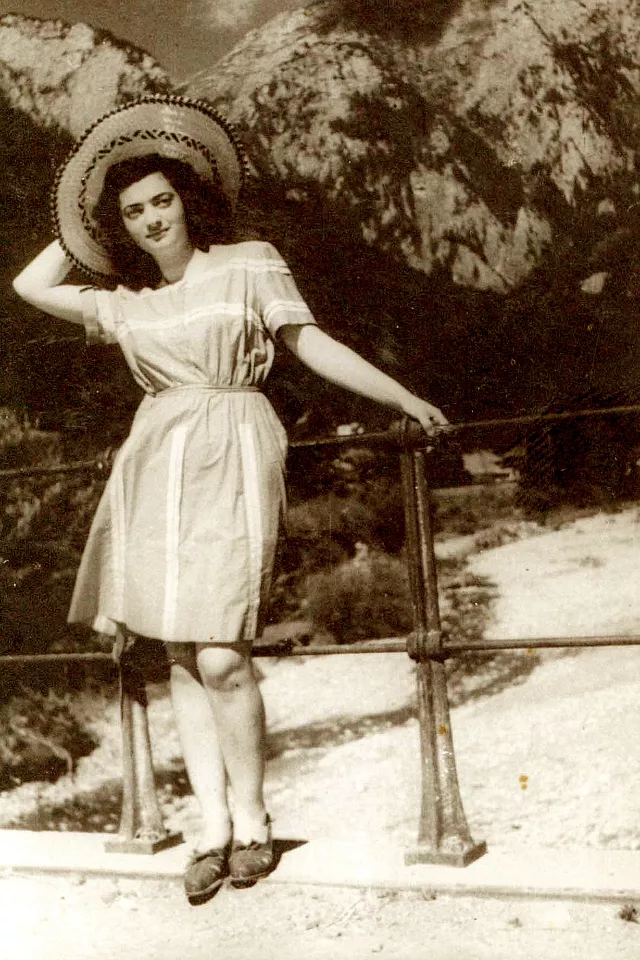This is a picture of me at the age of 19. This photo was taken on 20th August 1948, in Poiana Tapului [a spa in the Carpathian Mountains]. My mother took me to the mountains on vacation. I was impressed by the beauty of the place.
Hard times came after the war, after 23rd August 1944. It wasn't very hard at the beginning though. I went to the public high school, where I studied with many of my former teachers. My schoolmates from the Jewish High School sat at desks in the back of the classroom, but I didn't want us to look as though we were keeping our distance, so I sat in the third row. I interrupted my piano classes so I could study properly. My father, who wasn't used to seeing me so persevering, would send me to bed, but I always had something extra to do. I was an ordinary student, but I caught up with what I had missed at the Jewish High School, where I had been able to choose the subjects I liked more. They didn't give me this opportunity at the public high school.
I continued to live in Focsani. I was sick for two years, stayed indoors and lost contact with my schoolmates. I wasn't allowed to make any effort; they confined me to the bed and protected me as if I were an eggshell. My mother took me to Poiana Tapului, as the doctor recommended.
After two years, I had had enough and began to study really hard in order to catch up for admission to college. But what college was I supposed to choose? I was drawn towards the Letters, as I had enjoyed reading ever since I was a child. But my frustration about not having studied chemistry at the Jewish High School and about having had a chemistry teacher who used to humiliate us at the public high school made me go for the Faculty of Chemistry in Bucharest. I also had to learn about the nationalization, the laws and so on, and about the rights of the socialist woman: how 'she used to be long-haired and short-minded in the past' and how things had changed for the better after the war [the emancipation of the socialist woman and the parting with the bourgeois traditions, according to which a woman could be successful in life only through marriage]. My average was over 8 and I took the exam. I was very delighted.
I went to college with Dori Ianconescu and Lili Bercovici, her former classmate, who had to leave for Israel soon. My fellow-students were very special, both the Romanians and the Jews. I didn't keep in touch with the community in Bucharest, as I was very busy. My daily schedule was always full, I studied a lot and didn't go to parties much. Looking back, I feel frustrated about that. In the first two years, they didn't give me a free ticket for the canteen, as my father was an owner (he still had one shop assistant). In the 3rd year of college, the State took away his store [through nationalization], and moved him to another store. Things became more difficult for us. I had to find another place to rent in Bucharest.
Livia Diaconescu
The Centropa Collection at USHMM
The Centropa archive has been acquired by the United States Holocaust Memorial Museum in Washington, DC.
USHMM will soon offer a Special Collections page for Centropa.
Academics please note: USHMM can provide you with original language word-for-word transcripts and high resolution photographs. All publications should be credited: "From the Centropa Collection at the United States Memorial Museum in Washington, DC". Please contact collection [at] centropa.org.























